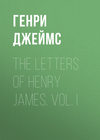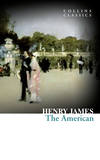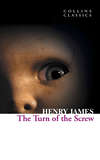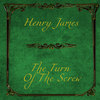Loe raamatut: «The Letters of Henry James. Vol. I», lehekülg 26
To Mrs. Humphry Ward
Lamb House, Rye.July 26th, 1899.
Dear Mrs. Ward,
I beg you not to believe that if you elicit a reply from me—to your so interesting letter just received—you do so at any cost to any extreme or uncomfortable pressure that I'm just now under. I am always behind with everything—and it's no worse than usual. Besides I shall be very brief.1 But I must say two or three words—not only because these are the noblest speculations that can engage the human mind, but because—to a degree that distresses me—you labour under two or three mistakes as to what, the other day, I at all wanted to express. I don't myself, for that matter, recognise what you mean by any "old difference" between us on any score—and least of all when you appear to glance at it as an opinion of mine (if I understand you, that is,) as to there being but one general "hard and fast rule of presentation." I protest that I have never had with you any difference—consciously—on any such point, and rather resent, frankly, your attributing to me a judgment so imbecile. I hold that there are five million such "rules" (or as many as there are subjects in all the world—I fear the subjects are not 5,000,000!) only each of them imposed, artistically, by the particular case—involved in the writer's responsibility to it; and each then—and then only—"hard and fast" with an immitigable hardness and fastness. I don't see, without this latter condition, where any work of art, any artistic question is, or any artistic probity. Of course, a 1000 times, there are as many magnificent and imperative cases as you like of presenting a thing by "going behind" as many forms of consciousness as you like—all Dickens, Balzac, Thackeray, Tolstoi (save when they use the autobiographic dodge,) are huge illustrations of it. But they are illustrations of extreme and calculated selection, or singleness, too, whenever that has been, by the case, imposed on them. My own immortal works, for that matter, if I may make bold, are recognizable instances of all the variation. I "go behind" right and left in "The Princess Casamassima," "The Bostonians," "The Tragic Muse," just as I do the same but singly in "The American" and "Maisie," and just as I do it consistently never at all (save for a false and limited appearance, here and there, of doing it a little, which I haven't time to explain) in "The Awkward Age." So far from not seeing what you mean in Pêcheur d'Islande, I see it as a most beautiful example—a crystal-clear one. It's a picture of a relation (a single relation) and that relation isn't given at all unless given on both sides, because, practically, there are no other relations to make other feet for the situation to walk withal. The logic jumps at the eyes. Therefore acquit me, please, please, of anything so abject as putting forward anything at once specific and a priori. "Then why," I hear you ask, "do you pronounce for my book a priori?" Only because of a mistake, doubtless, for which I do here humble penance—that of assuming too precipitately, and with the freedom of an inevitably too-foreshortened letter, that I was dealing with it a posteriori!—and that on the evidence of only those few pages and of a somewhat confused recollection of what, in Rome, you told me of your elements. Or rather—more correctly—I was giving way to my irresistible need of wondering how, given the subject, one could best work one's self into the presence of it. And, lo and behold, the subject isn't (of course, in so scant a show and brief a piece) "given" at all—I have doubtless simply, with violence and mutilation, stolen it. It is of the nature of that violence that I'm a wretched person to read a novel—I begin so quickly and concomitantly, for myself, to write it rather—even before I know clearly what it's about! The novel I can only read, I can't read at all! And I had, to be just with me, one attenuation—I thought I gathered from the pages already absorbed that your parti pris as to your process with "Eleanor" was already defined—and defined as "dramatic"—and that was a kind of lead: the people all, as it were, phenomenal to a particular imagination (hers) and that imagination, with all its contents, phenomenal to the reader. I, in fine, just rudely and egotistically thrust forward the beastly way I should have done it. But there is too much to say about these things—and I am writing too much—and yet haven't said half I want to—and, above all, there being so much, it is doubtless better not to attempt to say pen in hand what one can say but so partially. And yet I must still add one or two things more. What I said above about the "rule" of presentation being, in each case, hard and fast, that I will go to the stake and burn with slow fire for—the slowest that will burn at all. I hold the artist must (infinitely!) know how he is doing it, or he is not doing it at all. I hold he must have a perception of the interests of his subject that grasps him as in a vise, and that (the subject being of course formulated in his mind) he sees as sharply the way that most presents it, and presents most of it, as against the ways that comparatively give it away. And he must there choose and stick and be consistent—and that is the hard-and-fastness and the vise. I am afraid I do differ with you if you mean that the picture can get any objective unity from any other source than that; can get it from, e.g., the "personality of the author." From the personality of the author (which, however enchanting, is a thing for the reader only, and not for the author himself, without humiliating abdications, to my sense, to count in at all) it can get nothing but a unity of execution and of tone. There is no short cut for the subject, in other words, out of the process, which, having made out most what it (the subject) is, treats it most, handles it, in that relation, with the most consistent economy. May I say, to exonerate myself a little, that when, e.g., I see you make Lucy "phenomenal" to Eleanor (one has to express it briefly and somehow,) I find myself supposing completely that you "know how you're doing it," and enjoy, as critic, the sweet peace that comes with that sense. But I haven't the sense that you "know how you're doing it" when, at the point you've reached, I see you make Lucy phenomenal, even for one attempted stroke, to the little secretary of embassy. And the reason of this is that Eleanor counts as presented, and thereby is something to go behind. The secretary doesn't count as presented (and isn't he moreover engaged, at the very moment—your moment—in being phenomenal himself, to Lucy?) and is therefore, practically, nothing to go behind. The promiscuous shiftings of standpoint and centre of Tolstoi and Balzac for instance (which come, to my eye, from their being not so much big dramatists as big painters—as Loti is a painter,) are the inevitable result of the quantity of presenting their genius launches them in. With the complexity they pile up they can get no clearness without trying again and again for new centres. And they don't always get it. However, I don't mean to say they don't get enough. And I hasten to add that you have—I wholly recognise—every right to reply to me: "Cease your intolerable chatter and dry up your preposterous deluge. If you will have the decent civility to wait, you will see that I 'present' also—anch' io!—enough for every freedom I use with it!"—And with my full assent to that, and my profuse prostration in the dust for this extravagant discourse, with all faith, gratitude, appreciation and affection, I do cease, dear Mrs. Ward, I dry up! and am yours most breathlessly,
HENRY JAMES.
To Mrs. A. F. de Navarro
The "priceless volume" was an album belonging to Mrs. de Navarro (Miss Mary Anderson), in which she had asked H. J. to inscribe some words. His contribution, given below, recalls a memory of Miss Anderson before she left the stage.
Lamb House, Rye.Oct. 13: 1899.
Dearest, greatest lady,
I've filled a page, with my horrid hieroglyphics, in the priceless volume—and my characters are the more unsightly for having to be squeezed in—for I found that to point my little moral I had to take more than 20 words. Forgive their sad futility. I hope I understood you right—that I was to do it opposite Watts—I obeyed your law to what I supposed to be the letter. If I'm not quite correct, I can assure you that it will be the only time I shall ever break it! Yours and Tony's very constantly,
HENRY JAMES.
P.S. The volume goes by to-morrow a.m.'s post; tenderly and stoutly wrapped, violently sealed, convulsively corded and rigorously registered. Bon voyage!
THE GOLDEN DREAM.
A LITTLE TALE
It was in the days of his golden dreams that he first saw her, and she immediately became one of them—made them glow with a new rosy fire. The first night, on leaving the theatre in his breathless ecstasy, he could scarce compose himself to go home: he wandered over the town, murmuring to himself "I want, oh I want to write something for her!" He went again and again to see her—he was always there, and after each occasion, and even as the months and years rolled by, kept repeating to himself, and even to others, what he did want to. Now one of these others was his great friend, who irritated and probably jealous, coldly and cynically replied: "You may want to, but you won't. No, you will never write anything."
"I will!" he vehemently insisted. And he added in presumptuous confidence: "Just wait till she asks me!" And so they kept it up, and he said that too often for the G.F., who, exasperated, ended by retorting:
"She never will!"
"Well, you see if she doesn't!"
"You must think—" said the G.F. scathingly.
"Well, what?"
"Why, that she thinks you're somebody."
"She'll find out in time that I am. Then she'll ask me."
"Ask who you are?"
"No"—with majesty. "To write something."
"Then I shall be sorry for her. Because you won't."
"Why not?"
"Because you can't!"
"Oh!" But the months and years revolved and at last his dream came true; also it befell that, just at the same moment, the G.F. reappeared; to whom he broke out ecstatically: "I told you so! She has found out! She has asked me."
The G.F. was imperturbable. "What's the use? You can't."
"You'll see if I can't!" And he sat down and tried. Oh, he tried long—he tried hard. But the G.F. was right. It was too late. He couldn't.
HENRY JAMES.
Lamb House, Rye. Oct. 13, 1899.
To Sidney Colvin
The following refers to R. L. Stevenson's Letters to his Family and Friends, edited by Sir Sidney Colvin. H. J.'s article appeared in the North American Review, January 1900, and was afterwards reprinted in Notes on Novelists.
Lamb House, Rye.Wednesday night.[October 1899.]
My dear Colvin,
Many things hindered my quietly and immediately reabsorbing the continuity of the two gathered volumes, and I have delayed till this the acknowledgment of your letter (sent a few days after them,) I having already written (hadn't I?) before the letter arrived. I have spent much of the last two days with them—beautifully and sadly enough. I think you need have no doubt as to the impression the constituted book will make—it will be one of extraordinarily rare, particular and individual beauty. I want to write about it really critically, if I can—i.e. intelligently and interpretatively—but I sigh before the difficulty. Still, I shall probably try. One thing it seems to me I foresee—i.e. a demand for more letters. There are more publishable?—aren't there? But you will tell me of this. How extraordinarily fine the long (almost last of all) one to his cousin Bob! If there were only more de cette force! But there couldn't be. "I think I think" the impression more equal than you do—indeed some of the early ones better than the earlier ones after expatriation. But the whole series reek with charm and hum with genius. It will serve as a high memorial—by which I mean as a large (comprehensive) one. Remember that I shall be delighted to see you on the 18th. I may be alone—or Jon Sturges may be here. Probably nessun' altro. Please communicate your decision as to this at your convenience. If not then, then on one of the next Saturdays, I hope!
What horridly overdarkening S. African news! One must sit close—but for too long.
Yours ever,HENRY JAMES.
P.S. Re-reading your letter makes me feel I haven't perhaps answered enough your query about early vol. I. I don't, however, see what you need be uneasy about. The young flame of life and agitation of genius in them flickers and heaves only to make one regret whatever (more) is not there: never to make one feel your discretion has anywhere been at fault. I'm not sure I don't think it has erred a little on the side of over-suppression. One has the vague sense of omissions and truncations—one smells the things unprinted. However, that doubtless had to be. But I don't see any mistake you have made. With less, there would have been no history—and one wants what made, what makes for his history. It all does—and so would more. But you have given nothing that valuably doesn't. Be at peace.
H. J.
To Edmund Gosse
This refers to a suggestion that Stevenson's body should be removed from his place of burial, on the mountain-top above Vailima, and brought home.
Lamb House, Rye.Sunday [Nov. 12, 1899].
My dear Gosse,
I wholly agree with you as to any motion toward the preposterous and unseemly deportation from their noble resting-place of those illustrious and helpless ashes. I find myself, somehow, unable to think of Louis in these days (much more to speak of him) without an emotion akin to tears; and such blatant busybody ineptitude causes the cup to overflow and sickens as well as enrages. But nothing but cheap newspaperism will come of it—it has in it the power, fortunately, to drop, utterly and abysmally, if not touched—if decently ignored. Don't write a protest—don't write anything: simply hush! The lurid asininity of the hour!
I will write you about your best train Saturday—which heaven speed! It will probably be the 3.23 from Charing Cross—better, really, than the (new) 5.15 from St. Paul's. I find S. Africa a nightmare and need cheering. Arrive therefore primed for that office.
Ever yours,HENRY JAMES.
To Miss Henrietta Reubell
Lamb House, Rye.Sunday midnight.[Nov. 12th, 1899.]
Dear Miss Reubell,
I have had great pleasure of your last good letter and this is a word of fairly prompt reconnaissance. Your bewilderment over The Awkward Age doesn't on the whole surprise me—for that ingenious volume appears to have excited little but bewilderment—except indeed, here, thick-witted denunciation. A work of art that one has to explain fails in so far, I suppose, of its mission. I suppose I must at any rate mention that I had in view a certain special social (highly "modern" and actual) London group and type and tone, which seemed to me to se prêter à merveille to an ironic—lightly and simply ironic!—treatment, and that clever people at least would know who, in general, and what, one meant. But here, at least, it appears there are very few clever people! One must point with finger-posts—one must label with pancartes—one must explain with conférences! The form, doubtless, of my picture is against it—a form all dramatic and scenic—of presented episodes, architecturally combined and each making a piece of the building; with no going behind, no telling about the figures save by their own appearance and action and with explanations reduced to the explanation of everything by all the other things in the picture. Mais il parait qu'il ne faut pas faire comme ça: personne n'y comprend rien: j'en suis pour mes frais—qui avaient été considérables, très considérables! Yet I seem to make out you were interested—and that consoles me. I think Mrs. Brook the best thing I've ever done—and Nanda also much done. Voilà! Mitchy marries Aggie by a calculation—in consequence of a state of mind—delicate and deep, but that I meant to show on his part as highly conceivable. It's absolute to him that N. will never have him—and she appeals to him for another girl, whom she sees him as "saving" (from things—realities she sees). If he does it (and she shows how she values him by wanting it) it is still a way of getting and keeping near her—of making for her, to him, a tie of gratitude. She becomes, as it were, to him, responsible for his happiness—they can't (especially if the marriage goes ill) not be—given the girl that Nanda is—more, rather than less, together. And the finale of the picture justifies him: it leaves Nanda, precisely, with his case on her hands. Far-fetched? Well, I daresay: but so are diamonds and pearls and the beautiful Reubell turquoises! So I scribble to you, to be sociable, by my loud-ticking clock, in this sleeping little town, at my usual more than midnight hour.
Well, also, I'm like you—I like growing (that is I like, for many reasons, being) old: 56! But I don't like growing older. I quite love my present age and the compensations, simplifications, freedom, independences, memories, advantages of it. But I don't keep it long enough—it passes too quickly. But it mustn't pass all (good as that is) in writing to you! There is nothing I shall like more to dream of than to be convoyed by you to the expositionist Kraals of the Savages and the haunts of the cannibals. I surrender myself to you de confiance—in vision and hope—for that purpose. Jonathan Sturges lives, year in, year out, at Long's Hotel, Bond St., and promises to come down here and see me, but never does. He knows hordes of people, every one extraordinarily likes him, and he has tea-parties for pretty ladies: one at a time. Alas, he is three quarters of the time ill; but his little spirit is colossal. Sargent grows in weight, honour and interest—to my view. He does one fine thing after another—and his crucifixion (that is big Crucifié with Adam and Eve under each arm of cross catching drops of blood) for Boston Library is a most noble, grave and admirable thing. But it's already to-morrow and I am yours always,
HENRY JAMES.
To H. G. Wells
Lamb House, Rye.November 20th, 1899.
My dear H. G. Wells,
You reduce me to mere gelatinous grovel. And the worst of it is that you know so well how. You, with a magnanimity already so marked as to be dazzling, sent me last summer a beautiful and discouraging volume which I never mastered the right combination of minutes and terms to thank you for as it deserved—and then, perfectly aware that this shameful consciousness had practically converted me to quivering pulp, you let fly the shaft that has finished me in the fashion to which I now so distressfully testify. It is really most kind and charming of you, and the incident will figure largely in all your eventual biographies: yet it is almost more than I can bear. Seriously, I am extremely touched by your great humanity in the face of my atrocious bad manners. I think the reason why I didn't write to thank you for the magnificent romance of three or four months ago was that I simply dreaded a new occasion for still more purple perjury on the subject of coming over to see you! I was—I am!—coming: and yet I couldn't—and I can't—say it without steeping myself afresh in apparent falsehood, to the eyes. It is a weird tale of the acharnement of fate against an innocent action—I mean the history of my now immemorial failure: which I must not attempt to tell you thus and now, but reserve for your convinced (from the moment it isn't averted) ear on the day, and at the very hour and moment, that failure is converted to victory. I AM coming. I was lately extremely sorry to hear that you have been somewhat unwell again—unless it be a gross exaggeration. Heaven send that same. I AM coming. I thank you very cordially for the two beautiful books. The new tales I have already absorbed and, to the best of my powers, assimilated. You fill me with wonder and admiration. I think you have too great an unawareness of difficulty—and (for instance) that the four big towns and nice blue foods and belching news-trumpets, etc., will be the least of the differences in the days to come.—But it's unfair to say that without saying a deal more: which I can't, and [which] isn't worth it—and is besides irrelevant and ungracious. Your spirit is huge, your fascination irresistible, your resources infinite. That is much more to the point. And I AM coming. I heartily hope that if you have been incommoded it is already over, and for a corrigible cause. I AM coming. Recall me, please, kindly to Mrs. Wells, and believe me (I AM coming,) very truly (and veraciously) yours,
HENRY JAMES.




















